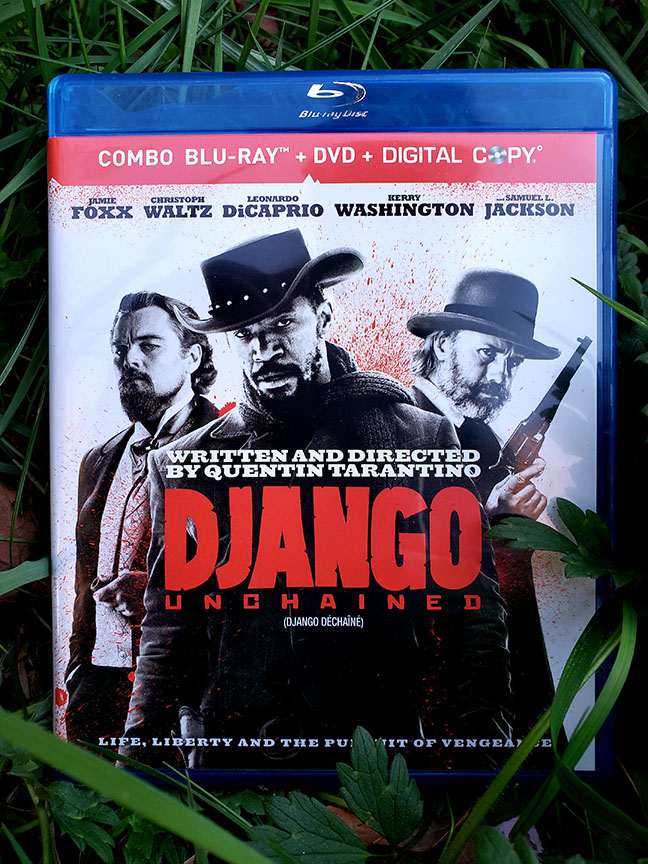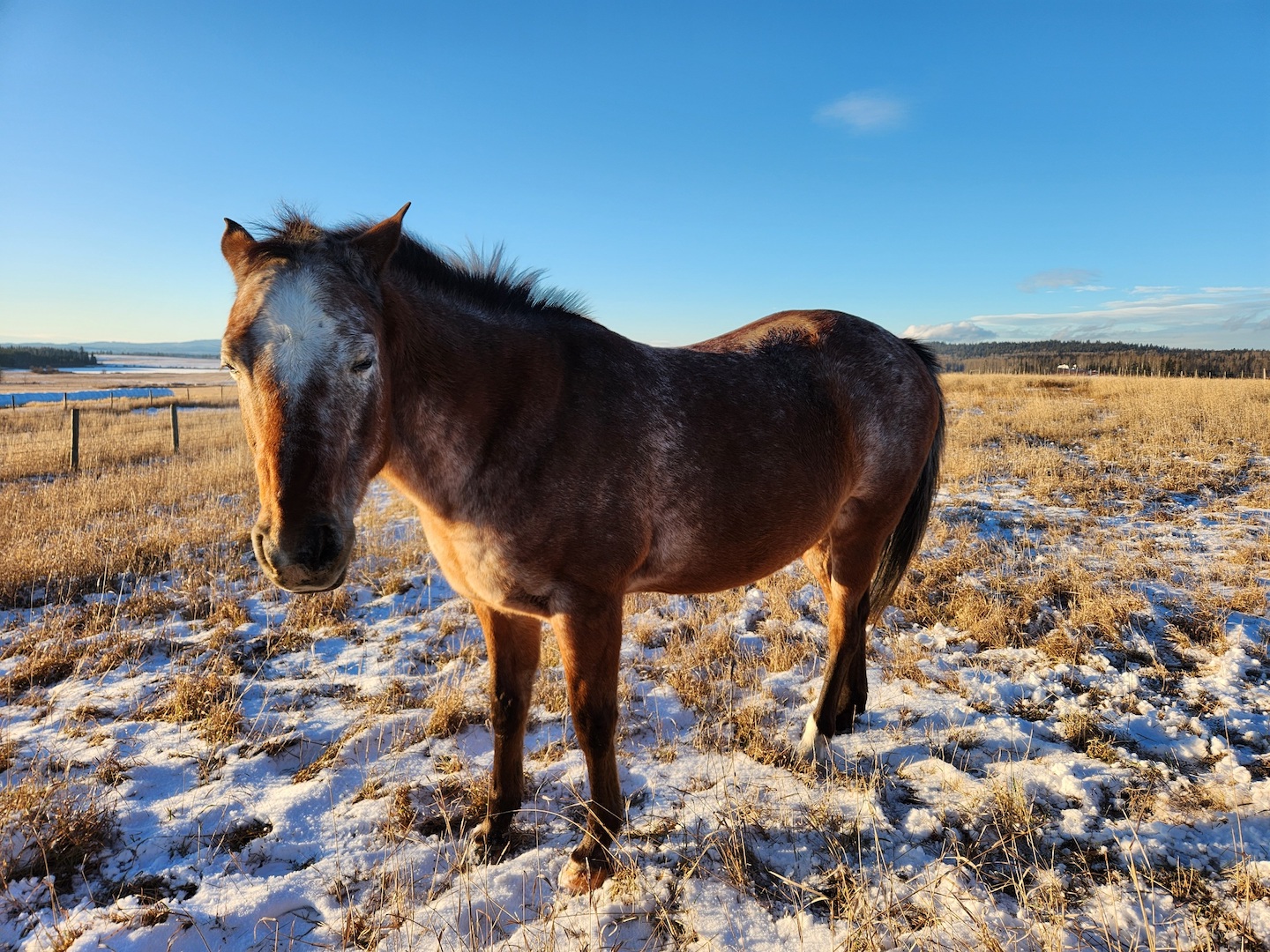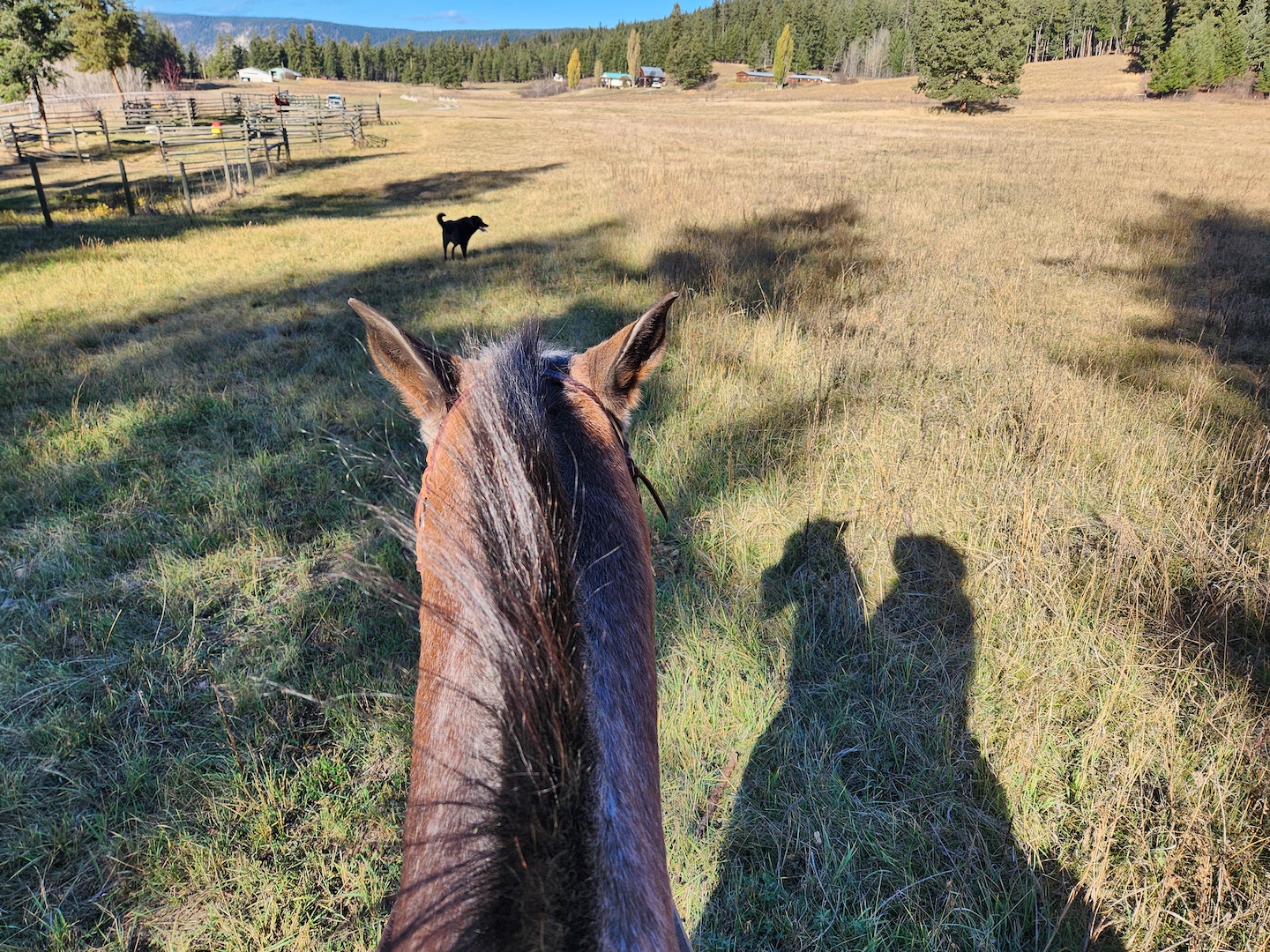Starring: Jamie Foxx, Christoph Waltz, Leonardo DiCaprio, Kerry Washington, Samuel L. Jackson
Director: Quentin Tarantino
Released: 2012
Mood: If you’re kind of burnt out on the white dude stories in 99% of Westerns and want to watch a strong Black bounty hunter with badass cowboy vibes take down slaveholders in gunfights that literally rain blood on the walls of mansions, but make it witty.
I want to preface this review of Django Unchained by saying that this is my wholly gore-loving and WHOLLY WHITE perspective.
Normally I don’t worry too much about that kind of thing. It should be obvious that reviews are opinions, and that they’re influenced by who you are, your experiences, and your personal taste. I try to point out when I think a script is offensive to any group of people, but I’m sure I miss plenty. And in this case, I may find this movie awesome while others are offended.
The only thing I find offensive about Django Unchained is that director Quentin Tarantino claimed he invented a new genre with it, ‘the Southern’.
Dude. Westerns are called Westerns because they deal with the topics of moving west (from Europe and then from the first East Coast settlements), and of life while developing that ‘new’ world. The name comes from the (ridiculous) idea that Europe is the centre of the f*cking world and started everything. Movies and books about the Civil War, during which the South was legally its own thing, are still considered Westerns.
If Spaghetti Westerns and Ramen Westerns and Indo Westerns are all Westerns, then movies about the American South are 100% Westerns. By Tarantino’s logic, Quigley Down Under isn’t a Western – it’s an Australian. And I will fight you if you try to tell me Quigley is not a Western.
I just got hugely sidetracked. I think Django Unchained is a brilliant movie, with tons of excellent nods to all kinds of awesome things like Spaghetti Westerns and drive-in movies.

Django Unchained begins in Texas, 1858. This is two years before the Civil War, so slavery is very much alive and well in the South (which is still West). A shackled group of male slaves are being marched through a forest at night by two white men on horses.
They encounter a polite and educated German man (Christoph Waltz) driving a dentist’s wagon, who says he has special interest in one of the slaves because he knows valuable information. He identifies Django Freeman (Jamie Foxx) and tries to buy him. The men refuse, and suddenly former dentist King Shulz opens fire.
Tarantino’s flair for extremely graphic violence instantly delivers what look like buckets of blood flying through the air upon every single shot. It’s a f*cking glorious thing to behold.
Dr. Schulz tells Django to grab some clothes and a horse from the dead racist, and they depart. It turns out Shulz is a bounty hunter, and Django can identify the three men he’s currently hunting. He makes Django a deal – help him find and kill the men, and Django will go free with a horse and money.
Django and Shulz become friends over the winter, with Django joining him as a partner in bounty hunting. Django has a natural skill with guns, and that skill plus his friendship with Schulz will come in handy finding his wife, Broomhilda (Kerry Washington). He lost her when they were severely beaten and sold to different slaveholders.
Broomhilda is at the Candyland plantation, owned by the ruthlessly cruel Calvin Candie (Leonardo DiCaprio). Django and Schulz need a plan to rescue her, and of course it’s going to be a bloodbath.

Django Unchained delivers on so many levels. The shootouts are a tremendous visual treat, if you like gore – and if you don’t, WTF are you doing watching a Tarantino movie? The costumes and cinematography are equally rich and delicious. There’s a winter scene in which Django practices shooting from the hip on a snowman, and the way it’s filmed is thoroughly enjoyable.
The story is often painfully brutal, yet at times weirdly heartwarming. Schulz’s joy each time Django chooses a new outfit, or proves exceptionally good at shooting, feels both fatherly and like a truly caring friendship – neither of which Django has been able to experience as an adult.
Tarantino puts his usual unflinching eye to scenes where Black people suffer absolutely horrific methods of torture. And it SHOULD be hard to watch. The interesting thing is that Tarantino chose to use his beloved buckets-of-blood gorefests in scenes where slaveholders were being killed, while the scenes depicting violence against the Black characters are less gratuitous and more realistically terrifying.

Jamie Foxx was the perfect choice to play Django, despite Will Smith and Idris Elba being Tarantino’s first choices. Foxx has this way of hiding every single emotion in his eyes to evoke a man who has to be guarded at all times, while still being fully present in the character. His natural horsemanship was obviously a huge asset, too.
That’s right. Jamie Foxx loves horses – he rode his own horse, Cheetah, in almost every scene except that terrifying bareback gallop toward the end, when he rode a stunt horse.
Waltz plays Schulz as this delightful mix of charming, intellectual, fatherly, and badass. From the first time he draws a gun to the last, it’s always done without breaking the flow of his clever dialogue.
It’s no surprise at all that DiCaprio is every bit as good a villain as he is a good guy. That’s why he’s consistently delivered outstanding performances in such a wide range of movies – it seems like he can do anything. In Django Unchained he gives you refinement, entitlement, and cold-blooded fury as Calvin Candi.
Samuel Jackson’s performance as Stephen, Candie’s loyal house slave, kind of hurts your brain. He has these scary dark looks like you know he’s every bit as mean as the rich white dudes, yet instead of rising up he takes it out on his own people (although Django outright says that Candie’s family ARE his people). Jackson has said that he thought of the character as having “the same moral compass” as famous Black republicans.

The biggest controversy around Django Unchained, aside from the violence, was the use of the n-word. Spike Lee said, “American slavery was not a Sergio Leone Spaghetti Western. It was a Holocaust.”
Tarantino said the word usage was about historical accuracy, and Foxx backed him up. Kerry Washington, who plays Broomhilda, agreed that the script was “intense, original, and important”. Others have said that it was inappropriate. I can see the point about how the ‘historical accuracy’ defense doesn’t necessarily work, since liberties were taken with lots of other elements including how some female slaves dressed and acted.
But I don’t think the intent was gratuitous or took away from the horrors of slavery. Tarantino examined slavery in the South through the lenses of his own style of cinematography and others. He’s taking a huge issue and building a movie around it that’s driven by the story – and in that way shining a spotlight on it to audiences around the world.
Again, that’s just my lily-white opinion. I can see how you would either love or hate this movie.
I LOVE Django Unchained. The story is so riveting that you can’t look away. I may not be willing to give Tarantino his own genre, but he can definitely have a Western subgenre. Let’s call it a SouthWestern.


